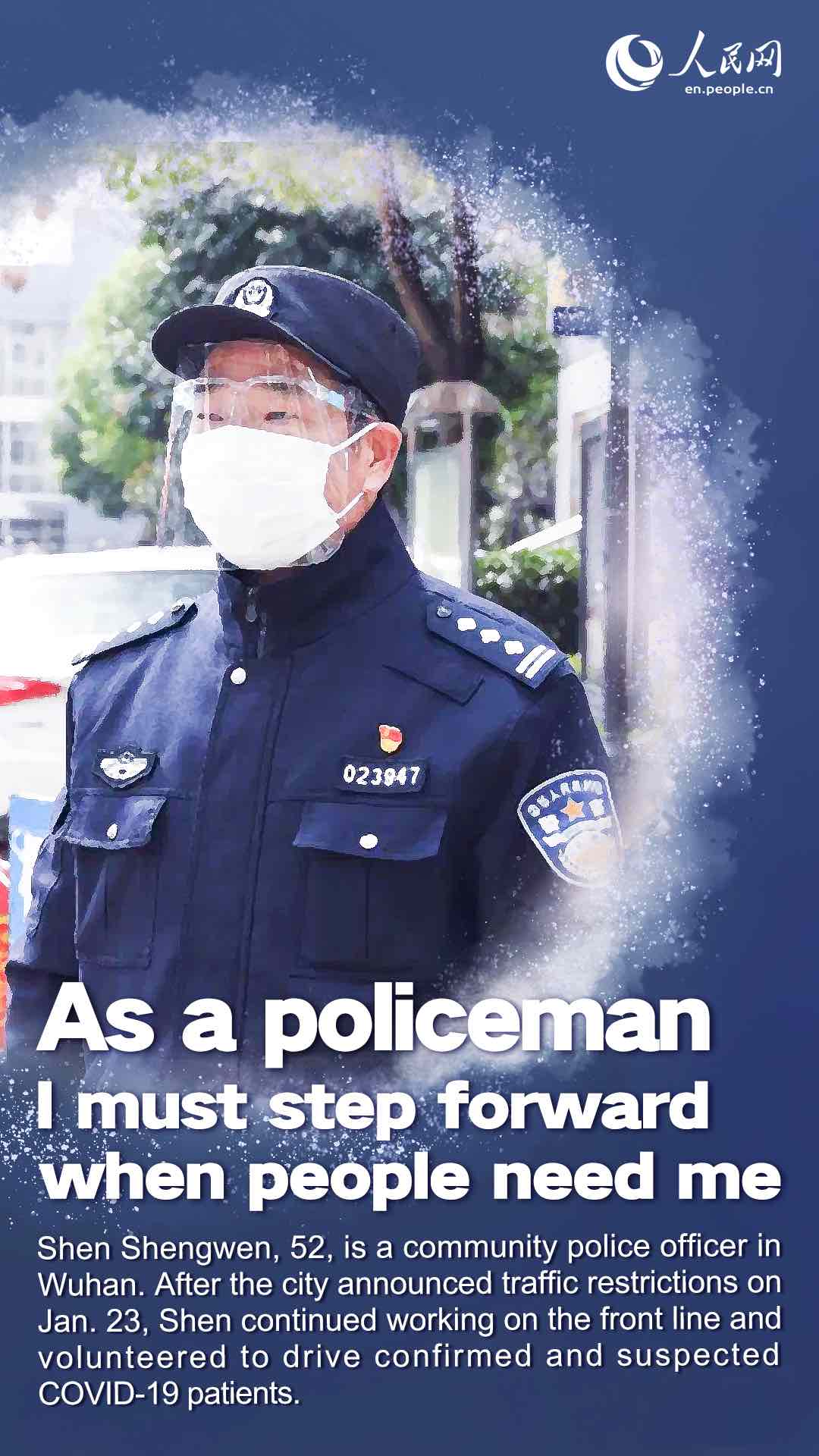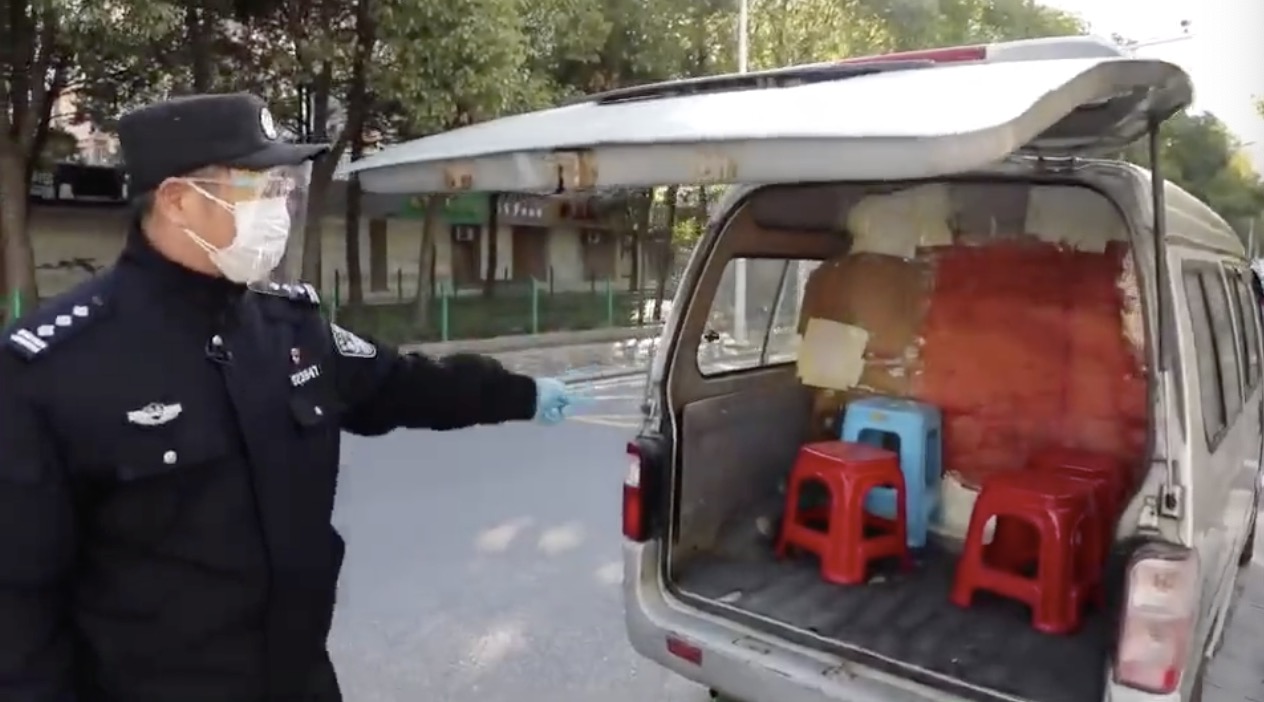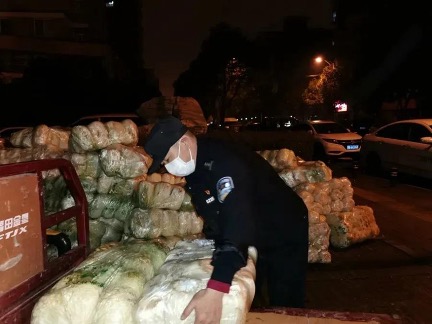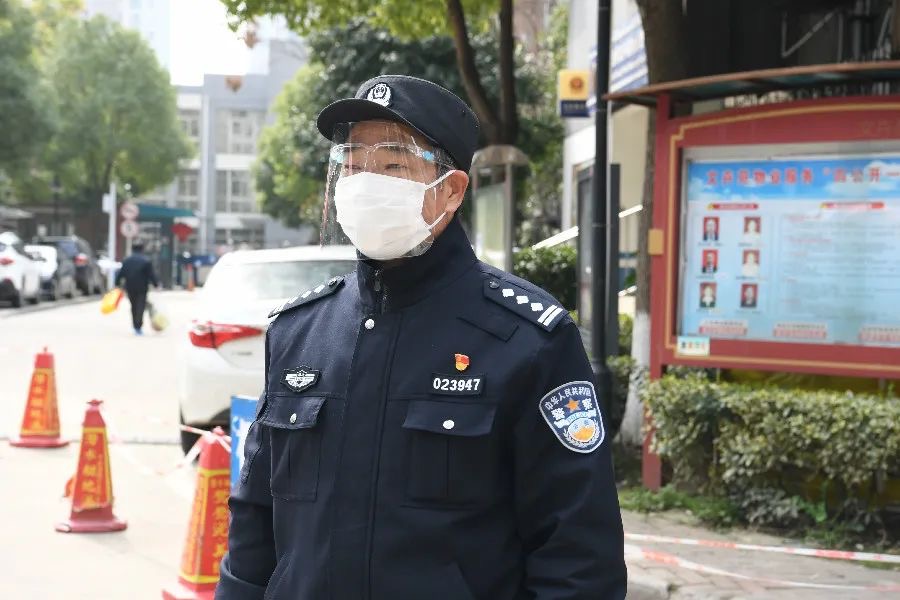


I should wish to die while still at work, knowing that others will carry on what I can no longer do, and content in the thought that what was possible has been done.
-- Bertrand Russell, Portraits from Memory
When Wuhan, the city at the center of the coronavirus outbreak in China, was put under lockdown, tens of thousands of policemen stepped up to help fight the virus. One of them was 52-year-old Shen Shengwen.
Shen serves the Baibuting community in Wuhan’s Jiang’an District. When Wuhan announced the travel restrictions on January 23, he received a phone call at 5am summoning him back to duty. From that point on, Shen continued to work in the epicenter of the outbreak as a guardian of local residents.
The area Shen is responsible for is the largest low-rent housing cluster in Wuhan, which has a population of over 10,000. It is home to many low-income households, older adults who live alone, as well as patients with disabilities and mental disorders in the community. Some were diagnosed as COVID-19 patients, putting extra pressure on anyone involved in epidemic prevention and control work there.
“There are many elderly people who live alone in this community. They are already very lonely, so they need more care in this time of crisis. I would be worried if I didn’t go to see them,” said Shen.
Since the outbreak of the epidemic, Shen has visited over a hundred senior citizens living alone one by one, and did whatever he could to help them. This included checking their body temperatures, disinfecting their houses, and even buying them daily necessities, food and medicines at his own expense.
“The disease brings not only physical pain to people, but also fear, despair and helplessness to their family members,” he said. “My ability is limited, but I will do my best to give them some comfort and hope.”

Shen Shengwen converted his private van into a transfer vehicle and volunteer to be the driver, despite the risk of being infected.
In late January, police stations in Wuhan began to help with the transfer of confirmed and suspected COVID-19 patients as well as their close contacts. However, Shen’s station had only two police vehicles available for the job, which was far from sufficient. This prompted Shen to convert his private van into a transfer vehicle and volunteer to be the driver, despite the risk of being infected.
Shen spent a whole morning making an "isolation area" in the van using foam sheets, plastic sheets and tape. So far, he has ferried over a hundred confirmed and suspected patients and close contacts around the city.
On February 17, the first day the community was sealed, Shen and his colleagues faced an even greater challenge in helping the community implement quarantine measures.

Shen Shengwen measures a resident's body temperature. (Photo/legaldaily.com)
Guarding the gate meant maintaining security, but for Shen, this was no easy task. “We see many quarrels and complaints. As it’s the first day, the situation is very complicated.”
Within the community, many residents still went outside to take walks. When he saw this, Shen reiterated to the residents the importance of wearing masks, and offered free masks to anyone he saw without one.
When he heard about an 81-year-old woman who was now living alone after her husband passed away during the epidemic, and was unable to cook as her gas stove had malfunctioned, he immediately went to her home to fix the problem and bought daily necessities for her.
His did these things for a very simple reason. “People trust me. As a policeman, I must step forward when they need me.”

After his old friends donated more than 6,000 kilograms of cabbage, he joined up with community volunteers and spent more than three hours overnight handing them out to poor households. (photo/legaldaily.com)
Shen always puts other people first. When people from all walks of life donated more than 10,000 masks to him, he distributed all of them to local residents, colleagues and volunteers. After his old friends donated more than 6,000 kilograms of cabbage, he joined up with community volunteers and spent more than three hours overnight handing them out to poor households.
Shen is one of hundreds of thousands of police officers in Hubei province. After the outbreak of COVID-19 started, 119,000 police officers in the province devoted themselves to fighting the epidemic.
Since January 23, Hubei has deployed 36,000 police officers to guard more than 650 entrances and exits and more than 2,900 checkpoints in its cities 24 hours a day, ensuring that national epidemic prevention and control work is conducted under the most stringent control measures.

Shen Shengwen continued to work in the epicenter of the outbreak as a guardian of local residents.
He recalls the time just before the Spring Festival when the epidemic had just started. “I drove a car for 15 minutes, without any other vehicle in sight. My heart went cold at that time. I felt that Wuhan had suddenly turned into a cold city,” he said.
“But we see in many provinces, PLA soldiers, nurses, doctors, materials all coming to aid Wuhan. Other countries are also standing in solidarity with us. Wuhan will get better eventually,” he smiled.
Shen is not afraid of the virus, but he is worried about his wife and daughter, who haven’t seen him since the city went into lockdown. Every day, his wife watches TV to learn about the epidemic situation, and worries about Shen’s safety.
In a letter to his daughter, Shen wrote, “I have too much responsibility: patients need to be transported; elderly people living alone need to be cared for; life-saving medicines for residents need to be delivered... My job has so many things that cannot be neglected, so I always miss you.”
Now, Shen is looking forward to the day of victory, when he will finally be able to take his daughter on the family outing that he promised her.

 Award-winning photos show poverty reduction achievements in NE China's Jilin province
Award-winning photos show poverty reduction achievements in NE China's Jilin province People dance to greet advent of New Year in Ameiqituo Town, Guizhou
People dance to greet advent of New Year in Ameiqituo Town, Guizhou Fire brigade in Shanghai holds group wedding
Fire brigade in Shanghai holds group wedding Tourists enjoy ice sculptures in Datan Town, north China
Tourists enjoy ice sculptures in Datan Town, north China Sunset scenery of Dayan Pagoda in Xi'an
Sunset scenery of Dayan Pagoda in Xi'an Tourists have fun at scenic spot in Nanlong Town, NW China
Tourists have fun at scenic spot in Nanlong Town, NW China Harbin attracts tourists by making best use of ice in winter
Harbin attracts tourists by making best use of ice in winter In pics: FIS Alpine Ski Women's World Cup Slalom
In pics: FIS Alpine Ski Women's World Cup Slalom Black-necked cranes rest at reservoir in Lhunzhub County, Lhasa
Black-necked cranes rest at reservoir in Lhunzhub County, Lhasa China's FAST telescope will be available to foreign scientists in April
China's FAST telescope will be available to foreign scientists in April